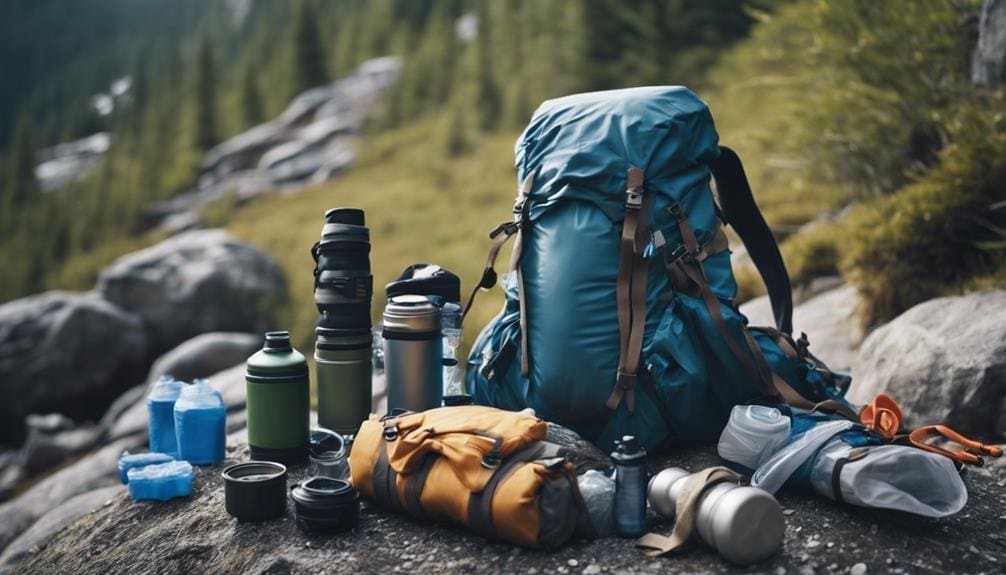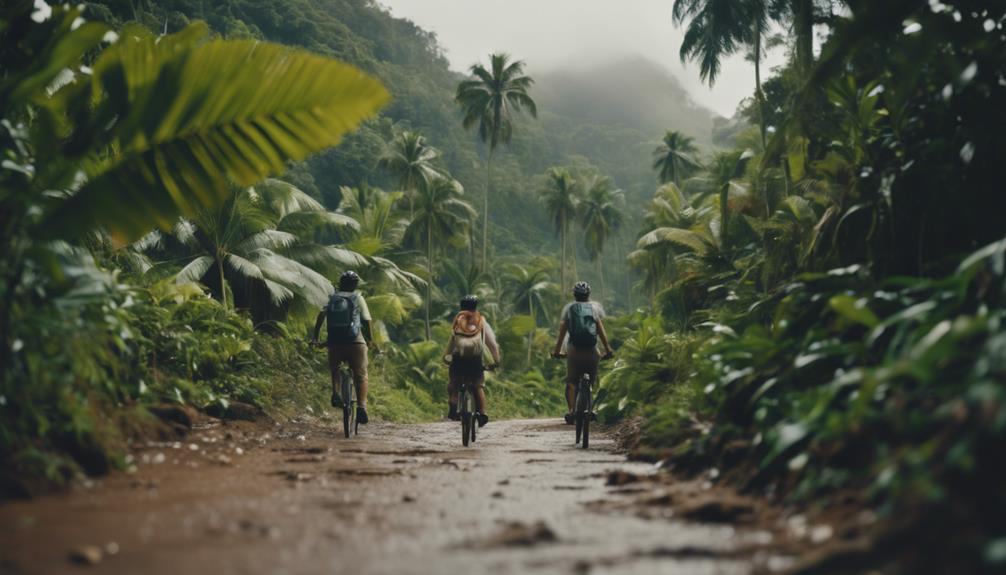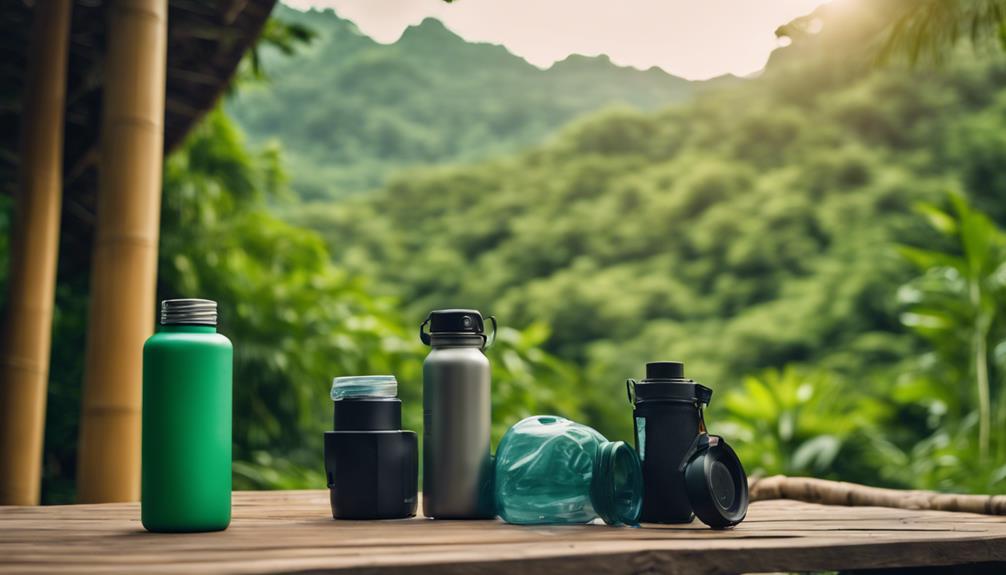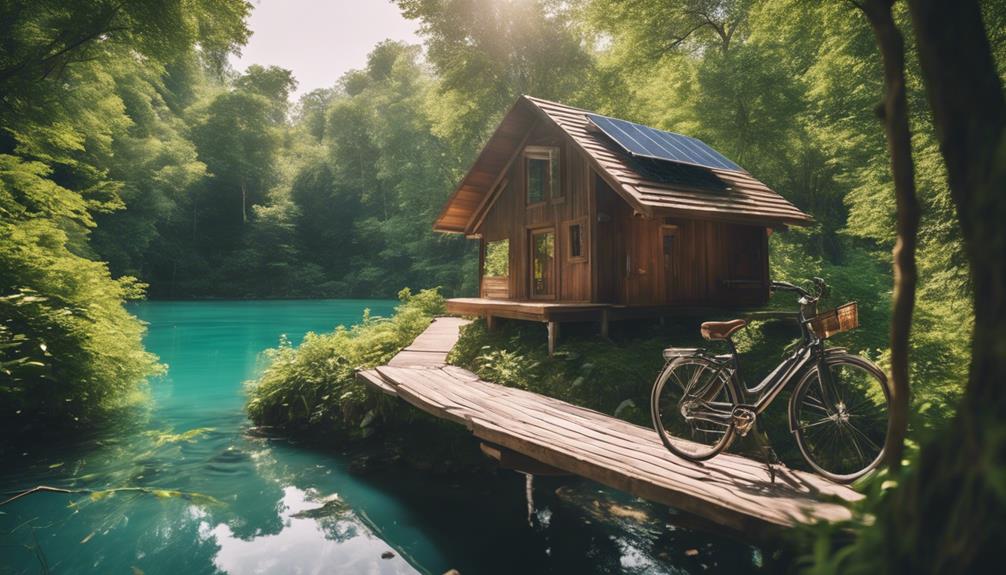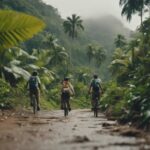As you stand atop a rugged peak, the crisp mountain air beckons, and the vast wilderness stretches before you. Imagine your next hiking adventure, where every step is light and effortless, thanks to the right gear.
But how do you navigate the sea of options to choose the best lightweight gear for hiking that suits your needs?
Let’s unravel the secrets to selecting gear that will enhance your outdoor excursions while keeping you light on your feet and ready for the trails ahead.
Key Takeaways
- Prioritize weight reduction for a better hiking experience.
- Opt for high-quality down insulation for sleeping bags.
- Streamline meal preparation with compact cooking gear.
- Stay hydrated efficiently with lightweight water filtration systems.
Ultralight Backpacking Tents
When selecting ultralight backpacking tents, prioritize weight reduction to enhance your overall hiking experience. Ultralight tents typically weigh under 3 pounds, important for lightening your load during long treks.
Consider tent designs like single-walled for minimal weight, freestanding for convenience, or trekking pole-supported for versatility. The choice between these designs depends on your preferences and hiking style.
Pay attention to factors such as floor space for comfortable sleeping and vestibule size for gear storage. Opt for materials like Dyneema, silnylon, or ripstop nylon for a balance of durability and weather protection.
Ventilation is key to preventing condensation buildup, especially in humid conditions. Evaluate ease of setup to streamline your camping experience and consider the packed size for fitting it into your backpack efficiently.
Prioritizing these aspects will ensure you have a lightweight backpacking tent that complements your hiking adventures.
Lightweight Sleeping Bags
For reducing overall pack weight while maintaining warmth and comfort on the trail, selecting an ultralight sleeping bag is essential. When choosing a lightweight sleeping bag, consider factors like fill power, weight, temperature rating, and material to make certain it meets your specific needs.
Look for features such as draft tubes, hood design, and footbox shape to optimize insulation and minimize heat loss during the night. High-quality down insulation in ultralight sleeping bags offers an excellent warmth-to-weight ratio, making them ideal for backpackers looking to minimize pack weight without sacrificing warmth.
Popular brands like Western Mountaineering, Feathered Friends, and Sierra Designs are known for producing quality lightweight sleeping bags that provide both performance and comfort on the trail. By carefully evaluating these features and selecting a sleeping bag that aligns with your requirements, you can enhance your outdoor sleeping experience while keeping your pack weight to a minimum.
Compact Cooking Systems
To enhance your backpacking experience further, explore into the world of compact cooking systems, which offer efficient meal preparation while minimizing the weight and bulk of traditional setups. When considering your cooking gear, look into the following items:
- Frankenstove: A combination of the MSR Pocket Rocket Deluxe stove and the Jetboil Stash Pot for a lightweight cooking solution on the trail.
- TOAKS Titanium 450ml Mug: A durable and lightweight option for boiling water or cooking meals while backpacking.
- TOAKS Titanium Spoon: A lightweight utensil perfect for eating meals on the go without adding unnecessary weight to your pack.
- Bic Mini Lighter: Guarantee a reliable and lightweight way to ignite your stove for cooking.
Compact Cooking Systems: Allow for efficient meal preparation while minimizing the weight and bulk of traditional cooking setups.
These compact cooking systems not only lighten your load but also streamline your cooking process, making them essential for any lightweight hiking adventure.
Efficient Hydration Solutions
Consider incorporating a lightweight water filter like the Katadyn BeFree Water Filter into your gear for efficient hydration on the trail. This type of filter provides fast purification, allowing you to refill your water bottles from natural sources without worrying about contaminants.
To keep your water easily accessible during hikes, opt for a shoulder strap pocket like the Outdoor Vitals Shoulder Strap Pocket. Carrying a pair of 1L Smartwater Bottles is a convenient and lightweight solution for staying hydrated on the go.
For efficient water filtration, consider using chemical treatments such as AquaTabs® to purify water with minimal weight. Another great option is the squeeze-style filter, like the MSR TrailShot, which is lightweight and provides quick water purification, making it essential for outdoor adventures.
These efficient solutions ensure you have access to clean and safe drinking water while keeping your pack weight to a minimum during your hiking escapades.
Practical Trekking Gear
When preparing for your trekking adventures, prioritize lightweight gear that enhances your comfort and performance on the trail. Here are some practical trekking gear essentials to contemplate:
- Ultralight trekking poles: Reduce strain on your joints and improve stability while hiking, allowing you to trek longer distances with ease.
- Lightweight hiking boots with ankle support: Prevent injuries, provide ankle support, and enhance comfort during long treks, reducing the risk of discomfort and potential accidents.
- Water filtration system: Stay hydrated on the trail with a compact and lightweight water filtration system like the Sawyer Squeeze, ensuring you have access to clean water wherever you go.
- Ultralight backpacking stove: Opt for a stove like the MSR PocketRocket for quick and efficient cooking options during your outdoor adventures, keeping you fueled and energized.
- Compact backpack: Choose a lightweight and breathable backpack with adjustable straps to optimize weight distribution, enhance comfort, and make your trekking experience more enjoyable.
Prioritizing these items won’t only improve your comfort but also elevate your overall trekking performance.
Frequently Asked Questions
What Is the Base Weight for Ultralight Hiking?
To go ultralight hiking, aim for a base weight under 10 pounds. Choose ultralight gear, pack essentials like ultralight tents, trail snacks, and ultralight clothing. Opt for water purification, ultralight sleeping bags, proper footwear, and an ultralight stove.
What Is the Weight Limit for Ultralight Hiking?
To optimize your ultralight hiking experience, consider gear selection, trail conditions, personal fitness, packing efficiency, food planning, water availability, emergency preparedness, weather considerations, terrain difficulty, and group dynamics. These factors impact your weight limit and overall enjoyment.
What Is the Difference Between Lightweight and Ultralight Backpacking?
When comparing lightweight and ultralight backpacking, focus on gear selection. Ultralight prioritizes minimalism for pack weight under 10 pounds. Lightweight balances comfort and weight, allowing slightly heavier gear. Consider necessary items, trail challenges, weather, safety, food, water, emergencies, and gear maintenance.
Are Ultralight Backpacks Worth It?
Ultralight backpacks are worth it for hikers aiming to reduce base weight. They offer durability and strength with minimalist designs. Pros include weight savings and reduced strain. Consider durability, comfort, and brand options when making your choice.
Conclusion
You’ve now learned how to select the best lightweight hiking gear for your outdoor adventures. Remember to prioritize weight reduction without sacrificing functionality to enhance your hiking experience.
From ultralight backpacking tents to compact cooking systems, efficient hydration solutions, and practical trekking gear, choosing the right gear can make all the difference in your enjoyment of the great outdoors.
Happy trails!

